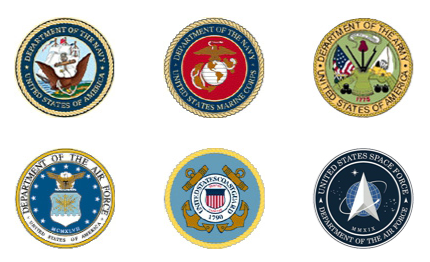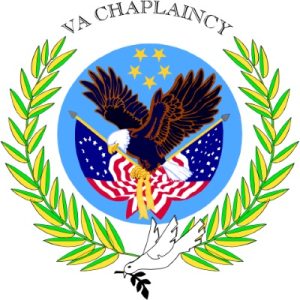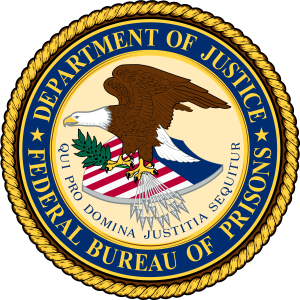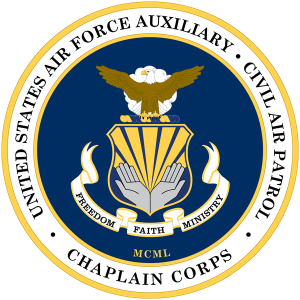Chaplains serve in unique environments, where they minister to people in special circumstances. Typically, this occurs in the military, hospitals, schools, prisons, and similar institutional settings.
Federal Chaplaincies
Ordained presbyters may serve in federal chaplaincy positions, provided they meet the requirements of the federal agencies. Approval of the diocesan bishop and UEC chaplain endorser are also required.
Department of Defense

Military chaplains serve in active duty, reserve, and National Guard positions in the United States armed forces. Appointments are in the Air Force, Army, and Navy. (Coast Guard and Marine Corps chaplains are provided by the Navy. Space Force chaplains are provided by the Air Force.)
Minimum requirements to serve as a military chaplain:
- U.S. citizenship.
- Bachelor degree of at least 120 semester hours from an accredited educational institution.
- Graduate degree of at least 72 semester hours in theological or related studies from an accredited educational institution.
- Ability to meet and maintain physical fitness standards.
- Be no more than 40 years old. (A waiver may be granted for an applicant with prior military service.)
- Ability to pass and maintain security clearances.
- Willingness to function in a pluralistic environment, supporting the free exercise of religion.
- Other eligibility requirements of the respective military department.
- Ordination as a presbyter.
- At least two years of ministry experience.
- Ecclesiastical endorsement from the United Episcopal Church.
Seminary students may qualify for the Chaplain Candidate Program. Chaplain candidates are commissioned officers in the Reserve components who are in a training status. They may not fill chaplain positions but train alongside chaplains, while completing educational and ecclesiastical requirements for chaplaincy qualification.
Minimum requirements to serve as a military chaplain candidate:
- U.S. citizenship.
- Bachelor degree of at least 120 semester hours from an accredited educational institution.
- Enrollment in a graduate-level degree program in theological or related studies at an accredited educational institution.
- Be eligible to complete educational, ecclesiastical, and other professional requirements before age limits for appointment as a qualified chaplain.
- Ability to meet and maintain physical fitness standards.
- Willingness to function in a pluralistic environment, supporting the free exercise of religion.
- Other eligibility requirements of the respective military department.
- Ecclesiastical approval from the United Episcopal Church.
If you are interested in military chaplaincy, contact the UEC military chaplain endorser or speak with your diocesan bishop.
Department of Veterans Affairs

Veterans Affairs chaplains serve in VA hospitals and clinics throughout the United States.
Minimum requirements to serve as a VA chaplain:
- U.S. citizenship.
- Ability to pass background clearance.
- Ability to pass minimal physical examination.
- Bachelor degree of at least 120 semester hours from an accredited educational institution.
- Graduate degree of at least 72 semester hours in theological or related studies from an accredited educational institution.
- At least four units of Clinical Pastoral Education (CPE) from an accredited CPE center.
- Board certification from a recognized professional chaplain certifying body.
- Some positions may require specialty board certification from a recognized professional chaplain certifying body.
- Willingness to function in a pluralistic environment, supporting the free exercise of religion.
- Ordination as a presbyter.
- At least two years of ministry experience.
- Ecclesiastical endorsement from the United Episcopal Church.
If you are interested in VA chaplaincy, contact the UEC VA chaplain endorser or speak with your diocesan bishop.
Federal Bureau of Prisons

The Bureau of Prisons (BOP) operates prisons and detention centers throughout the United States.
Minimum requirements to serve as a BOP chaplain:
- U.S. citizenship.
- For three of the past five years, resided in the United States or have been in federal service.
- Bachelor degree of at least 120 semester hours from an accredited educational institution.
- Graduate degree of at least 80 semester hours in theological or related studies from an accredited residential educational institution.
- Be 21-37 years old for initial appointment. (Waiver may be available.)
- Ability to pass and maintain background clearances.
- Willingness to function in a pluralistic environment, supporting the free exercise of religion.
- Ordination as a presbyter.
- At least two years of ministry experience.
- Ecclesiastical endorsement from the United Episcopal Church.
If you are interested in BOP chaplaincy, contact the UEC BOP chaplain endorser or speak with your diocesan bishop.
Civil Air Patrol

The Civil Air Patrol (CAP) is an auxiliary of the U.S. Air Force. There are both similarities with and differences from military chaplaincy. CAP chaplains provide support for local unit activities, search-and-rescue operations, and national disasters. They also provide character development training.
Minimum requirements to serve as a CAP chaplain:
- Bachelor degree of at least 120 semester hours from an accredited educational institution.
- Graduate degree of at least 72 semester hours in theological or related studies from an accredited educational institution. (A waiver may be granted for an applicant with at least five years in ordained ministry.)
- Ability to pass and maintain security clearances.
- Willingness to function in a pluralistic environment, supporting the free exercise of religion.
- Ordination as a presbyter.
- At least two years of ministry experience.
- Ecclesiastical endorsement from the United Episcopal Church.
If you are interested in CAP chaplaincy, contact the UEC military chaplain endorser or speak with your diocesan bishop.
State Chaplaincies

Each state operates chaplain programs in colleges and universities, hospitals, prisons, and other institutions.
Minimum requirements to serve as a state chaplain vary by state and institution.
If you are interested in state chaplaincy, contact your diocesan bishop.
Other Chaplaincies
Both clergy and laity may serve in other areas of chaplaincy. Such ministry may support:
- First responders, such as fire and police departments.
- Schools and colleges.
- Local hospitals and clinics.
- Retirement homes, assisted living facilities, nursing homes.
- Shelters for women and/or children.
- Homeless shelters.
- Substance abuse recovery centers and programs.
- County and city jails.
- Military veteran service organizations.
- Sick and shut-in care.
- Bereavement care.
- Camps, conference centers, and retreats.
Requirements for these chaplaincy positions vary by institution. Some chaplaincies are focused primarily on Christian education, pastoral care, or counseling, and lay ministry may be appropriate in these settings. Other chaplaincies require preaching and sacramental ministry; only presbyters may serve in such roles.
If you are interested in local chaplaincy, speak with your pastor or contact your diocesan bishop.
